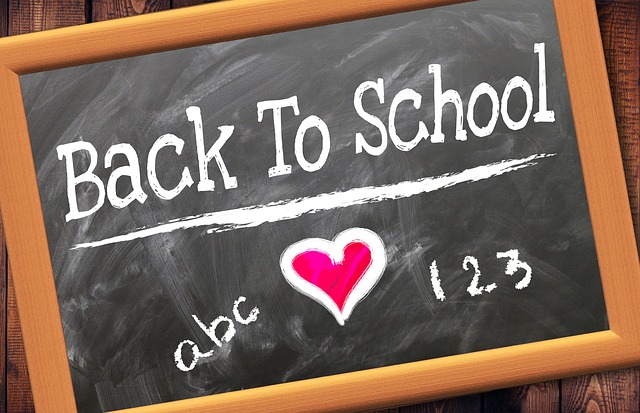No matter whether a child is excited to return to school or nervous about their first day back, parents can help their children be well-prepared to begin the school year.


Help them to Lean on Social Relationships:
If possible, have your child spend time with other children in their class before school starts. This will help your child have friends to see on their first day back. Similarly, for children who take the bus, it will be helpful for them to know and feel comfortable with other children on their bus route.
For Children who are Anxious about Returning to School:
If a child expresses worries about returning to school, it is best to listen and then recognize these worries. You can problem solve together about what they can do in situations they are worried about. Ask for their suggestions first, and then work together to find solutions. For children who are very anxious, it is helpful to share information with their teacher. You can also remind your child that you will be there to help them through any upcoming challenges with school.
For Children with Medical Conditions, Mental Health Needs or Behavioral Challenges:
Contact your child’s physician to hear their suggestions and to help with coordination of care. Also, be in contact with your child’s school counselor and teacher before school starts to set up a time to meet. Your child may best succeed with additional support that the school can provide on an individualized basis.
The Importance of Establishing Routines:
For children and teenagers, one of the greatest challenges is getting back into the routine of the school day. To prepare for this transition, it is helpful for parents to set bedtimes and wake-up routines that coincide with the upcoming school schedule at least a few days before school begins. This change can help children and teenagers mentally prepare for the upcoming return to school while helping them be well rested once school begins. It will also help children to have time to eat a good breakfast and not be rushed during the first days back. If there are other large changes to the daily routine, (e.g. early lunch, no nap in kindergarten, change in after school caretaker) it may be helpful to make these changes at home as well before school begins.
Talk Together about the Upcoming School Year:
Children tend to feel better prepared and less nervous entering a new situation when they have a better sense of what to expect. Share information you have received from the school, and talk about the structure of their day including when school starts and when school ends. Remind them of parts of school that are exciting like getting to make new friends and learn new things. Ask if they have questions about school. If you can, answer questions that they have. If you can’t answer their questions, talk about how you can find the answers together once school starts.

To learn more about the expert pediatric mental health services offered at Yale New Haven Children’s Hospital and Yale Child Study Center visit http://ynh.care/r0fK30lxoKz
Amanda Van Scoyoc, PhD specializes in clinical child psychology with a focus on children who have experienced trauma. She is a community faculty member at Yale Child Study Center and works closely with the Director of Yale Child Study Center, Linda Mayes, MD.

